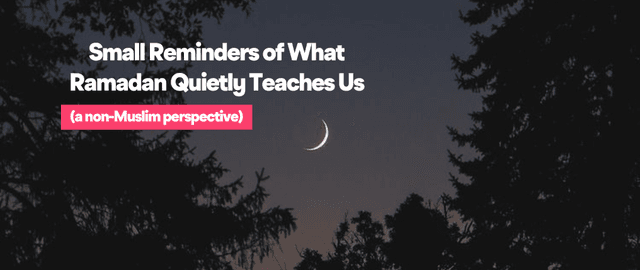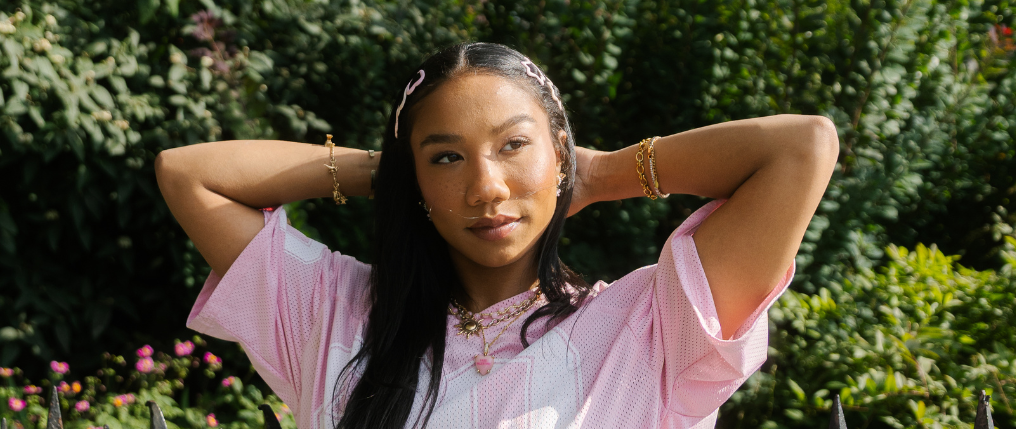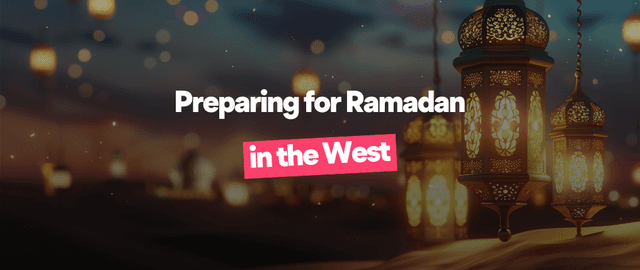
Black History Month UK: Love Through a Multicultural Lens
October 5, 2025

We spoke with Maryam Thomas during Black History Month UK, to unpack how Muslims from multicultural and mixed heritages view love, relationships and marriages today. Maryam is a digital creator who specialises in lifestyle, beauty, and fashion focused content. She aims to pave the way for underrepresented voices in creative spaces.
You come from both Black and Malay heritage. How would you describe the way these two cultures shape your sense of self?


Looking for your soulmate?
You won’t find your soulmate on this blog post but you might find them on Muzz - the world’s biggest Muslim dating and marriage app.
Growing up with both Black and Malay heritage has completely shaped my sense of self. On my mom’s Malay side, I’ve been connected since I was a baby, from traveling there often when I was younger, learning Malay at home with my mom, and staying rooted in culture even when distance and cost made visits less frequent. On my dad’s Black side, ironically I spent much of my childhood in predominantly white environments, first in Wisconsin, then Long Island, where being Muslim, Black, and Asian often felt isolating. For a long time, I downplayed parts of my identity like being Muslim because of stereotypes and racism. There weren’t many girls who looked like me, so I felt pressure to fit in rather than stand out.
That shifted when I moved to Charlotte, North Carolina for high school. Being surrounded by more diversity allowed me to fully embrace who I am. I started wearing my natural curls instead of straightening them, felt proud when people asked about my heritage, and realized that my mix of cultures was something unique and beautiful.Those experiences taught me that identity isn’t about hiding the parts that make you different; it’s about embracing them. Today, I see my Black and Malaysian roots, along with my Muslim faith, as my greatest strengths. They’ve made me adaptable, empathetic, unique, and proud to stand in spaces where representation is still growing, like content creation.
From your Black roots, what stories of culture or experiences have shaped your understanding of love and community?
The most influential story from my Black heritage is the love story between my grandparents. My grandfather was Black, and my grandmother is white, and at the time they fell in love, segregation was still very real in America. Interracial marriage was actually illegal. Instead of giving up on their relationship, they moved to France, where they were free to marry. My grandfather went on to attend medical school there since opportunities were closed off to him in the States. Eventually, they returned to America and built their lives together, raising children and building a family through all of those challenges.
Their story has always been a source of inspiration for me. It showed me that love is powerful enough to cross boundaries society tries to set, and that real commitment sometimes means going against the grain. Even though interracial marriage was only legalized in the U.S. within the last few decades, the resilience of their union reminds me that love and community are strongest when they’re rooted in courage, sacrifice, and the belief that everyone deserves to be seen and cherished. I’m so proud to be their grandchild, and this story will always be a huge part of my identity.
Love should never have a color or condition attached to it.
Maryam Thomas
And from your Malay roots, what values or traditions stand out as particularly influential in how you think about family and relationships?
In Malay and broader Asian culture, being family-oriented is deeply ingrained. Caring for elders and even living with extended family is seen as completely normal, and that perspective has shaped me in powerful ways. For example, my recent decision to move in and help take care of my grandmother is directly influenced by those values. In many Western contexts, it’s more common for elders to be placed in care facilities, which isn’t necessarily wrong, especially when families are juggling demanding jobs or raising children. But for me, my upbringing made it feel natural and necessary to rearrange parts of my personal life so I could prioritize my grandmother’s well-being. This value of putting family first has carried into how I think about relationships overall: love and commitment aren’t just about two people, they’re about your tribe and family, and yes, that includes your in-laws.
Have you always felt your identities blended naturally, or has it been a journey learning how to hold space for both at once?
It’s definitely been a journey. For a long time, I felt like I didn’t fully belong anywhere, not completely in the Black community, not fully in the white community, and not fully in the Asian community either. I used to put so much pressure on myself to “pick a side” or fit neatly into one box. Eventually, I realized you don’t have to fit into just one category; you can hold space for all the parts of who you are (and honestly, being mixed means I literally do check multiple boxes on forms, which always makes me laugh). What really helped me was finding community with other mixed kids in high school. A lot of my close friends were also mixed girls, and I think we gravitated toward each other because we just got it. We could relate to that feeling of being in-between, but instead of seeing it as a limitation, we saw it as something special. We all had the privilege of getting to experience multiple cultures all at once.
How do family and community expectations, from both sides, influence the way you think about partnership and commitment?
When it comes to my family, we’re extremely mixed with different cultures, ethnicities, and even religions represented. Because of that, there isn’t really a rigid “checklist” of expectations. The main thing my family values is that our partners practice Islam and that they treat us with respect, love, and kindness. Loyalty, support, and good character are what matter most. Community expectations, though, can feel a little different. Sometimes there are outside pressures about what a “perfect” partner should look like, whether that’s cultural background, career, or occupation. But I’ve learned that at the end of the day, it’s not about living up to every expectation out there, it’s about building a partnership that’s rooted in God, trust, and mutual respect. That’s what lasts. I can happily say I’m in a loving, happy, and healthy relationship, Alhamdullilah, and I’m looking forward to our future together. I adore and love his family, and my family loves him right back.
From your perspective, what role should cultural heritage play in Muslim marriages today, as a complement to faith, not a barrier?
I think a lot of people mix the two up, but culture and religion are actually very different things. Yes, they overlap in many ways. Culture often influences how religion is practiced, and religion can shape culture too, but they aren’t the same. For me, it’s really important to go back to what Islam itself says about marriage, not just what culture says. That becomes especially important when you come from multiple cultural backgrounds, because traditions can sometimes clash or even contradict each other. In some cases, culture can even dictate things that don’t align with Islam. That’s why open and honest conversations with family are so important: to understand where they’re coming from culturally, and then weigh that against what faith teaches us.
When culture and religion work together, it’s beautiful. I also think cultural heritage can be a bridge between families, helping to create unity and mutual respect across different backgrounds. Personally, I’d love to incorporate traditional Malaysian elements into my own future wedding, but I’d also love to incorporate the traditions my partner feels are important to him. It’s a way of honoring where we both come from while keeping faith at the center. To me, that’s what it means for culture to be a complement, not a barrier.
Culture adds richness, identity, and tradition to a marriage, while faith provides the foundation that keeps everything balanced.
Maryam Thomas
Do you feel your multicultural background gives you a wider lens on what love and partnership can look like in a Muslim context?
Absolutely! Growing up in such a multicultural family has shown me that love and partnership don’t have to look just one way. I’ve seen it firsthand with my brother marrying a Black woman, my sister marrying a Jordanian man, and my mom being Malay while my dad is Black. Each relationship looks different culturally, but the common thread is always the same: our faith in God and the love and support we give one another. I also think being rooted in just one culture can sometimes make it feel like there’s only one “right” way to do things, whether that’s because of family pressure or cultural expectations, and that’s completely understandable. But I feel really privileged to come from a background where multiple perspectives are part of my everyday life.
It’s given me such a wide lens on love: I’ve been able to see that there isn’t one single formula for a happy, faith-centered marriage. That perspective makes me both grateful and hopeful, because it reminds me that love in Islam has room to look different for everyone as long as it’s built on respect, commitment, and a shared devotion to God.
What lessons or values from your heritages would you want to pass on to future generations about love, marriage, and family?
There isn’t just one way to approach love, marriage, or family. You have to find what works best for you. If you want to marry outside of your culture or ethnicity, do it. As long as you share common faith and values, there’s something so beautiful about blending cultures and learning from one another. The world is a melting pot, and no one should pressure you into marrying a certain way if it doesn’t feel right for you. As long as it’s halal, it’s okay to go against the grain.
At the end of the day, you should choose someone who makes you happy, someone who pushes you to grow, and someone who strives to better themselves, too. Marriage is about partnership, and it’s not always a perfect 50/50. Sometimes you’ll carry more, sometimes your partner will. But the balance evens out when there’s love and intention. One value I especially want to pass on is this: it should always be you and your partner together against the problem, never partner versus partner.
Finally, what advice would you share with young Muslims navigating the modern search for a partner, while trying to stay true to both their faith and their heritage?
One of the biggest lessons I’ve learned is the importance of being on the same page, whether it’s wanting kids, how you’ll raise them, or what role faith will play in your household. These conversations might feel heavy, but they’re crucial early on. In today’s world, especially in the West, it’s easy to get swayed by the dating culture around us. That’s why it’s so important to be upfront and honest with potential partners about your intentions from the very beginning. Communication is key, and clear boundaries protect both people from heartbreak. I’ve seen too many situations where someone invests in a relationship only to realize later that their goals don’t align.
One of my favorite reminders comes from the Qur’an, which my best friend used frequently throughout her wedding last year, Surah An-Naba, verse 8: “And We created you in pairs.”
Maryam Thomas
At the same time, don’t lose hope. Everything happens for a reason, and if you’re experiencing heartbreak, it’s because something better is in store for you. Your partner is out there. Be patient, trust Allah’s timing, and know that the right person will come when it’s meant to be. The process might take time, but in the end, it will be worth it, Insha’Allah.
Banner cover photo credits: @zebo.g

